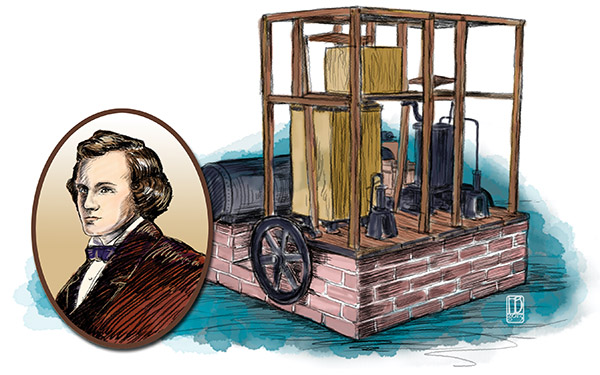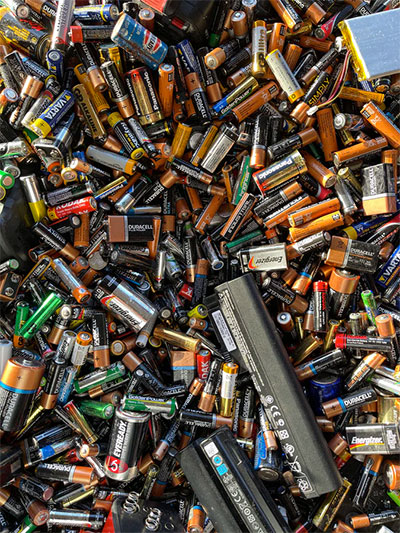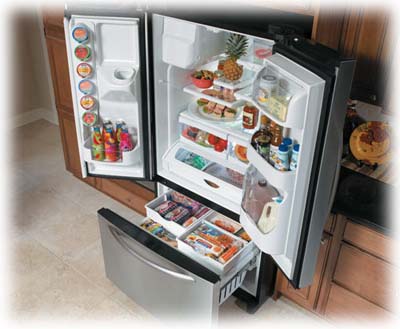Is Your Family’s Water Too Hard?
Many people suggest that families should use water softeners. But is it really necessary?

To know when to install a water softener to your plumbing system, it is first essential that you figure out if there’s a hard water supply in the house. Now, if you aren’t familiar with what water hardness is or how it might affect you, this is just the guide for you.
Starting from what hard and soft water is to divulging their advantages and disadvantages, we are here to tell you all.
What Exactly Is Water Hardness?

There’s a lot of talk about high water hardness ruining the quality of water in your house. But what exactly is water hardness? Let us try and explain it simply. It is the amount of minerals that are present in your water. When there are excess minerals in the water, like dissolved calcium and magnesium, you have a hard water problem.
Hard water creates a number of issues that might reduce the quality of your living. If your family’s water is too hard, the members might experience high blood pressure and dry skin issues too. Additionally, when the water is hard, it is likely to stick to your skin and clothes. This is because the dissolved minerals do not allow the water to roll off easily.
Moreover, you would be surprised to know how hard water can make it rather difficult to wash off soap lather. And if you have hard tap water flowing through the tap, your appliances and fixtures might also start to corrode.
So, it is essential that you keep a check on the scale buildup and the level of water hardness. In case you notice that the hardness is too much, you will need to install a water treatment system in the house.
Once the water is treated, you will get proper water (without excess minerals) flowing out of your hot water heater and other taps in the house. When the water is soft, it will easily roll off things and keep your dishes and other equipment in perfect shape. Without any calcium and magnesium deposits, the lifespan of your appliances will also increase.
Ideal Water Hardness- A Quick Look
Before you go on to check if the water in the house is alright or if it needs a water softener, you first need to know the ideal water hardness. After checking, if you find out that the water hardness ranges somewhere between 0-3 grains for every gallon, there’s nothing that you need to worry about.
To avoid problems of corrosion and keep your drinking water safe, we suggest that you select the pipes used in the plumbing system carefully. And it is best if you do not use water softeners.
On the other hand, you should also be careful that there’s not too much soft water running through your pipes, as that will create pinhole leaks over time. The water does not contain minerals and has a tendency to draw minerals from pipes ultimately leading to such leaks.
If you are opting for metal pipes, something between 80-180 PPM would be fine. On the other hand, if you opt for PVC pipes, they can handle contamination between 20-80 PPM.
Can Water Hardness Affect Your Family’s Health?

Water is an essential component in any home, and its quality has a direct impact on the members of the household. So, to safeguard your family’s health, you need to make sure that the water is not too soft or too hard. After all, anything in the extreme can be detrimental to your health.
Moving on, seeing mineral buildup in pipes is quite common and happens in most households using hard water. But if this is left untreated for a long time, you might soon notice the water pressure in the house faltering and you may need to replace the entire pipeline.
However, you need to understand that soft water might not be the solution to overcome the problems we just discussed. In case the water is too soft, there’s a high chance that your pipes will rust sooner than usual. Also, soft water might not be the best bet if you plan to use water for your lawn or garden.
Because soft water has a very low amount of minerals in it, there is an increased risk that your plants won’t survive too long. This happens because of a lack of essential nutrients.
What Hardness Level Is Safe For Water?
Very hard water can leave long-term impacts on consumer health and you will have to be careful about the hardness level of the water in your homes. In general, the acceptable limit ranges between 100-300 PPM. But you should remember that the level might vary depending on where you live.
Just to give you an estimate, The US Environmental Protection Agency suggests that for safety reasons, the hardness level of drinking water should be between 50-70 PPM. For other purposes like doing laundry and washing utensils, it is not a problem if the water hardness is higher.
You would be surprised to know that some people actually prefer hard water for bathing purposes, as it leaves them squeaky clean. But there is a downside to doing this. High hardness levels of water have a tendency to increase soap buildup in your hair and body. And when this happens over a long time, you might experience dry skin and flat hair.
If you feel that the water flowing through the taps is too hard or soft for your liking, there are ways to adjust it. You can use Zeolite on hard water and convert the calcium and magnesium to sodium ions.
Be it hot water or cold water, you can easily use proper filtration systems or water softeners to remove excess amounts of minerals present in the water. However, if you are a victim of soft water running through your plumbing system, consider opting for a mineral-adding system. You can also take the help of a professional to install these systems in place and regulate the water quality.
Frequently Asked Question
These are the most common questions that we get from our readers about water hardness. And in this section, we will try to answer these questions:
1. Is there any hardness in soft water?
Contrary to popular belief, soft water is not devoid of hardness. In general, soft water contains around 0-1 grain/ gallon of water. Simply put, there will be 20 PPM of minerals in the water. After testing, if you find that the water contains less than 3 grains/gallon, you will not need to use a softening mechanism.
This amount of grain means that the water is already soft, and there is no need to soften it further unless the chemical composition is higher than 60 PPM. There’s no doubt that this water would have a great impact on your skin and hair. But, a word of caution, if you use this to water your plants, they will likely die due to lack of nutrition.
2. What is the pH level of hard water?
Hard water, popularly known as alkaline water, has a pH level of 8 or higher.
When the pH level is this high, it means that the water has a high level of ions that can easily form scale deposits in faucets and pipes. At times, it might even leave marks on your clothes and utensils.
If the alkalinity of the water is too much, you might find the taste a bit bitter as well.
3. Is hard water acidic or basic?
The answer to this question depends on how much mineral is present in the water.
If there are a lot of minerals present in a home’s water supply, you can be sure that the water is acidic. However, when the water does not have too many minerals present in it, you know it is basic. To sum it up, hard water is more alkaline than soft water and soft water is more acidic when compared to hard water.
Final Words
To ensure your family’s well-being, it is essential that you keep checking the water quality from time to time. Unless the water is pH-balanced, you might have to face unwanted impacts.
Further, if your zip-code zone is infamous for having hard water, it is best to invest some money and get a water softener installed. Notably, hard water can be not just detrimental to your family’s health but can also kill aquarium fish.
So, while checking the alkalinity of your tap water, make sure you check the water quality in the aquarium too. The point is to know what is safe for consumption and what is not. Once you know that, you can take the necessary steps accordingly.
We’ll be signing off for now. Until next time, stay safe!





